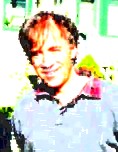Root cause
The Observer/Guardian has a feature piece on the background of the London bombers. (Thanks to Anna Kelly for the tip.) What emerges is a stew of radical Islamic teachings, Pakistani connections, and a degree of alienation among young Britons in the immigrant community, exacerbated by Britain's involvement in Afghanistan and Iraq. Liberal democracies, whose life blood is tolerance and diversity, are faced with the difficult question of how to combat those in their midst who reject tolerance and diversity. Is religion itself--or at least any religion that demands obedience to an allegedly divine moral code--at root an enemy of liberal democracy? Have a look at this Ottawa Citizen column by David Warren. Warren argues that to avert disaster, and combat Islamic fundamentalism, Western countries must reject Enlightenment values and return to an explicitly Christian social and political regime. This view, which is growing on the conservative right in North America, seems to me a mirror image of Islamic fundamentalism, although not yet as violent. (Many in the Muslim world, however, see the invasion of Iraq as an example of Crusader violence.) Warren says even Sharia law is to be preferred to secularism.
In her book Science As Salvation, the fine British philosopher Mary Midgley argues that teleology--the discovery of design and purpose--is intrinsic to human understanding of the world. Science is part of this enterprise, and even scientists who are atheists are not immune from the search for meaning. For many, science fills the role that religion fills for others. The difference is that science is, or ought to be, a rational enterprise, welcoming vigorous debate, with its theories forever open to revision. My point here is that there is a powerful desire in humans for systems of belief that seem to make sense of the world and that tell us how to conduct our lives. Some people would rather die, and kill others too, than live with uncertainty. We live in an age when the verities of the nation state, the capitalist order, and Newtonian science are crumbling, and when many are desperately seeking refuge in other-worldly dogmas. If the values of science, progress, and democracy cannot find a new footing in an economically and ecologically sustainable global community, irrational and dangerous beliefs will rush in to fill the void. As H. G. Wells wrote, "Human history becomes more and more a race between education and catastrophe." Those who are not willing to abandon the world to the fundamentalists have their work cut out for them. Time is short.
July 22 update: Here are pieces worth reading by Polly Toynbee and Naima Bouteldja.
In her book Science As Salvation, the fine British philosopher Mary Midgley argues that teleology--the discovery of design and purpose--is intrinsic to human understanding of the world. Science is part of this enterprise, and even scientists who are atheists are not immune from the search for meaning. For many, science fills the role that religion fills for others. The difference is that science is, or ought to be, a rational enterprise, welcoming vigorous debate, with its theories forever open to revision. My point here is that there is a powerful desire in humans for systems of belief that seem to make sense of the world and that tell us how to conduct our lives. Some people would rather die, and kill others too, than live with uncertainty. We live in an age when the verities of the nation state, the capitalist order, and Newtonian science are crumbling, and when many are desperately seeking refuge in other-worldly dogmas. If the values of science, progress, and democracy cannot find a new footing in an economically and ecologically sustainable global community, irrational and dangerous beliefs will rush in to fill the void. As H. G. Wells wrote, "Human history becomes more and more a race between education and catastrophe." Those who are not willing to abandon the world to the fundamentalists have their work cut out for them. Time is short.
July 22 update: Here are pieces worth reading by Polly Toynbee and Naima Bouteldja.




<< Home